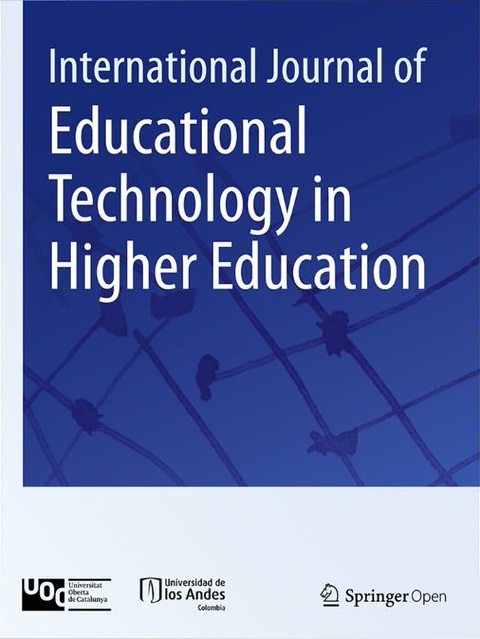影响学生在虚拟学习环境中有效使用电子学习方法意愿的挑战
IF 16.7
1区 教育学
Q1 EDUCATION & EDUCATIONAL RESEARCH
International Journal of Educational Technology in Higher Education
Pub Date : 2023-05-07
DOI:10.46328/ijte.407
引用次数: 2
摘要
在大流行期间,教育部门受到严重影响,教学方式从面对面转变为在线模式。到目前为止,我们知道虚拟学习环境已经提出了沉重的要求,特别是对学生。在自己家里学习,他们不得不孤立地学习,不能像在传统教室里那样得到老师和同学的支持。随着我们在疫情期间继续提供在线课程,重要的是要解决学生的孤立感和他们继续学习的努力。本研究旨在确定疫情期间学生在虚拟学习环境中面临的挑战在多大程度上影响了他们有效使用在线学习方法的意愿。本研究的调查对象为一所私立大学的学生。本研究采用定量方法。一套在线问卷调查由367名受访者参与。利用结构方程模型(SEM)和智能PLS对研究数据进行分析,结果表明,自我调节、学生的孤立感和学习资源的缺乏显著影响他们有效使用电子学习方法的意愿。因此,很明显,学生有效学习的意图必须得到自身以外因素的支持,以保持他们高度的积极性,纪律性,以及通过自主学习的主动性。本文章由计算机程序翻译,如有差异,请以英文原文为准。
Challenges Impacting Students’ Intention to Effectively Use E-Learning Method in a Virtual Learning Environment
During the pandemic period, the education sector was heavily impacted involving transformations of instructional delivery from face-to-face to online mode. To date, we know that the virtual learning environment has been posing heavy demands particularly on the students. Learning from their own homes, they had to learn in isolation, deprived from the support of the instructor and peers as in conventional classrooms. As we continue to pursue online program offerings beyond the pandemic period, it is important to address students’ sense of isolation and their efforts to stay engaged in learning. This study aims to identify the extent to which the challenges students faced in a virtual learning environment during the pandemic, have impacted their intention to effectively use the online learning method. Respondents for this study consist of students in one private university. This study employs a quantitative method. A set of questionnaire survey was administered online with a return of 367 respondents. The research data was analyzed using Structural Equation Modelling (SEM) and Smart PLS. The findings gathered indicate that self-regulation, students' sense of isolation and lack of learning resources significantly impact their intention to effectively use e-learning methods. It is thus evident that students’ intention to learn effectively must be supported by factors outside of themselves, to keep them highly motivated, disciplined, as well as proactive through self-directed learning.
求助全文
通过发布文献求助,成功后即可免费获取论文全文。
去求助
来源期刊
CiteScore
19.30
自引率
4.70%
发文量
59
审稿时长
76.7 days
期刊介绍:
This journal seeks to foster the sharing of critical scholarly works and information exchange across diverse cultural perspectives in the fields of technology-enhanced and digital learning in higher education. It aims to advance scientific knowledge on the human and personal aspects of technology use in higher education, while keeping readers informed about the latest developments in applying digital technologies to learning, training, research, and management.

 求助内容:
求助内容: 应助结果提醒方式:
应助结果提醒方式:


